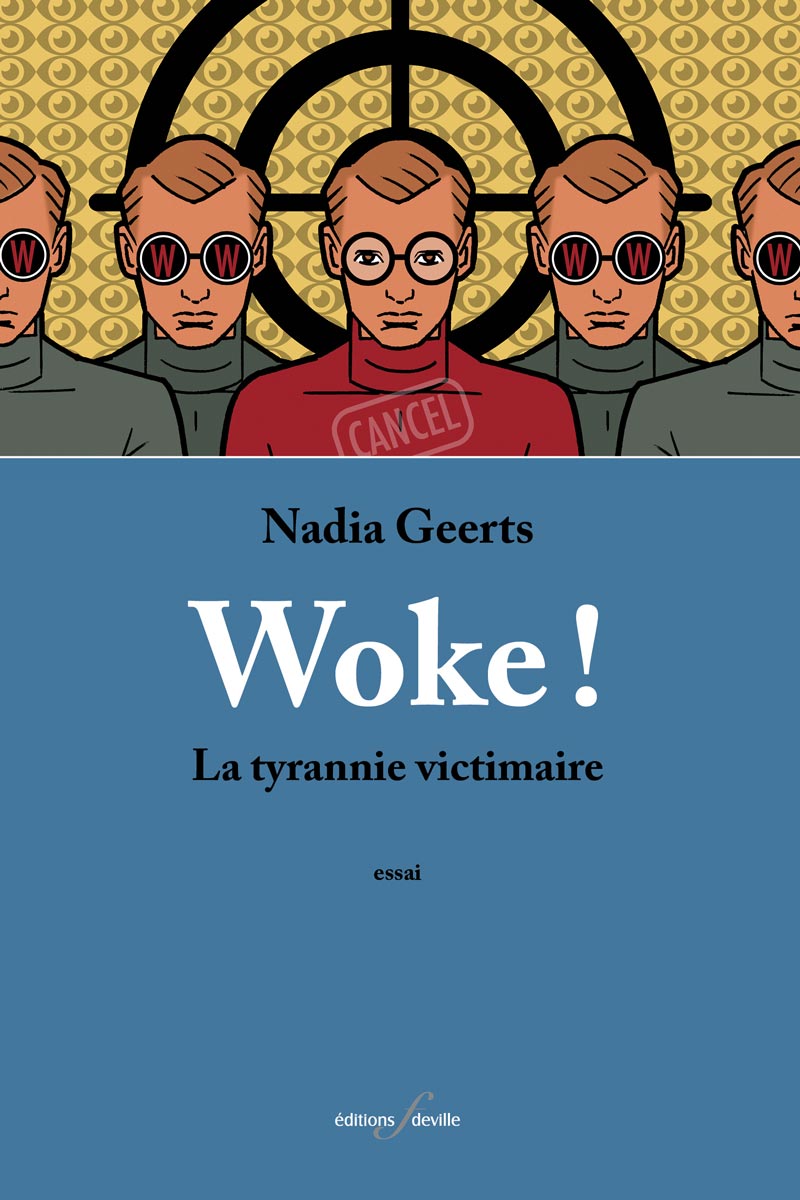Nadia Geerts
Nadia Geerts’ book is an essential contribution to the critical analysis of the wokist phenomenon, as this ideology emerges in European democracies, imported from the Anglo-Saxon world.
Nadia Geerts was awarded the International Secularism Prize in 2019.
Nadia Geerts, at the crossroads of philosophy and the history of ideas, draws up a diagnosis of the present by adopting a perspective inherited from the Enlightenment, calling into question the ideological conformism and snobbery of the wokist left, which claims to be radical.
Fourth cover
Welcome to the complex and controversial world of wokism. In this book, Nadia Geerts offers an in-depth analysis of this ideology, which is gaining ground in Europe after its emergence in the United States. She describes how wokism pushes to erase and debunk, develops ‘inclusive’ policies that respect «diversity’, and encourages censorship and denunciation by silencing dissenting voices.
This oppression is everywhere: in language, in our artistic productions and even in the way we travel, we eat, we love... Under the guise of a fight for social justice, it could well a new form of domination that brooks no contradiction or nuance, certain of holding the truth and belonging to the camp of the good. If all this heralds not a rosy future, but an appalling decline in freedom, equality and reason?
The key themes addressed by Nadia Geerts in her book, highlighting the dangers she identifies in the rise of wokism.
The origins of woke
The term «woke», borrowed from the slang of African-Americans and popularised by the Black Lives Matter movement in the United States, awareness of injustice, inequality and discrimination. Nadia Geerts points out that this awareness, when adopted by left-wing or progressive ‘woke’ activists, can lead to a paranoid vision and the legitimisation of censorship. Denunciation, harassment and intimidation are used as a means of silencing those perceived to be as contravening wokist norms, normalising the professional exclusion of ideological deviants.
Woke culture
The « woke » culture, heir to the political correctness of the 1990s and 2000s, is characterised b constant vigilance against « micro-aggressions » perceived as racist, sexist or discriminatory.
Nadia Geerts highlights the phantasmagorical nature of these ‘microaggressions and highlights the growth in the number of victim and professional activists, highlighting the lucrative industry of victimisation. Woke silliness manifests itself in a paranoid lexicocentrism, where everyday daily language micro-revolutions aim to purify the language of any offensive connotations.
The threat to freedom of expression
Nadia Geerts argues that « culture woke » represents a threat to rationality, equality and freedom of expression. The practice of denunciation accusation and exclusion leads to a «cancel culture» which seeks to change culturally and socially those who do not conform to wokist norms.
This approach, she argues, betrays the spirit of the Enlightenment by hijacking the emancipatory ideal in favour of an identity and relativist ideology.
The religious dimension of wokism
Nadia Geerts underlines the religious or para-religious character of « wokism », pointing towards an intolerant neo-religiosity. She refers to the work of John McWorther and Braunstein to analyse the messianic dimension of wokism.
In her view, the destruction of language by inclusive writing is part of a programme of virtuous decivilisation, promising redemption by deconstructing of the West’s ‘cursed’ past.
Nadia Geerts denounces this new form of dogmatism. She invites us to reflect on skin colour as a negligible factor, arguing for a universal, non-identity-based anti-racism. The book thus makes a significant contribution to a critical understanding of the wokist phenomenon in the contemporary context.







